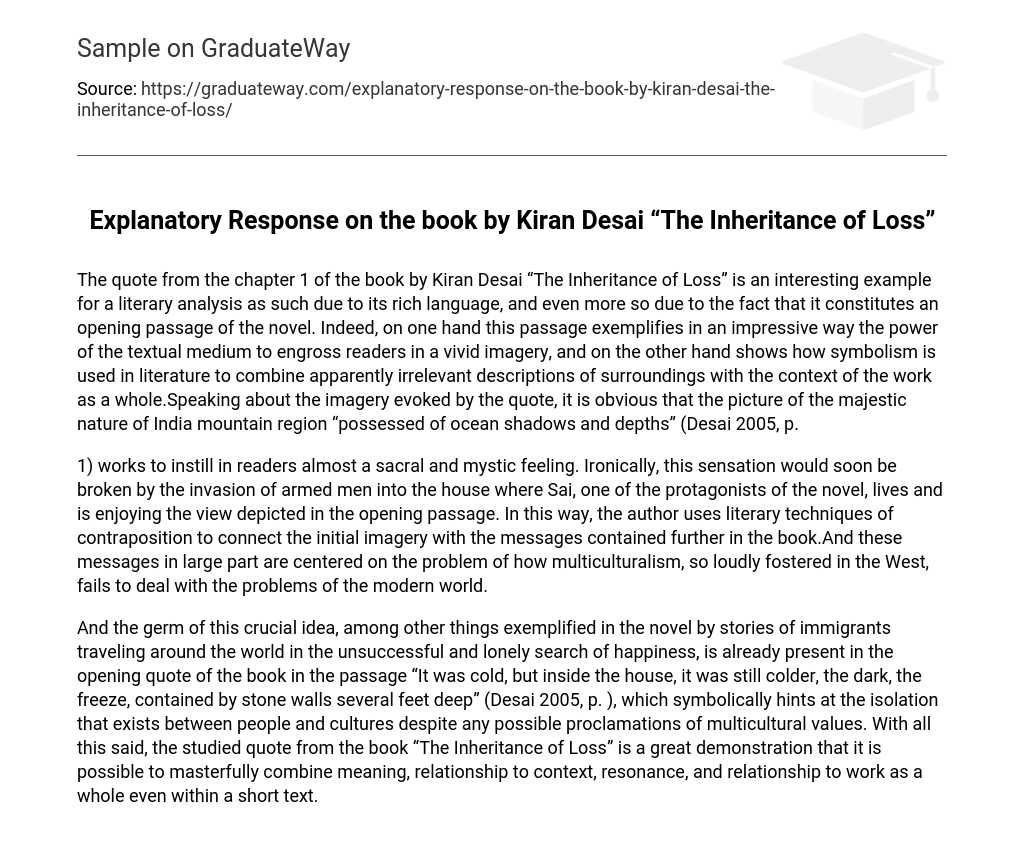The quote from the chapter 1 of the book by Kiran Desai “The Inheritance of Loss” is an interesting example for a literary analysis as such due to its rich language, and even more so due to the fact that it constitutes an opening passage of the novel. Indeed, on one hand this passage exemplifies in an impressive way the power of the textual medium to engross readers in a vivid imagery, and on the other hand shows how symbolism is used in literature to combine apparently irrelevant descriptions of surroundings with the context of the work as a whole.Speaking about the imagery evoked by the quote, it is obvious that the picture of the majestic nature of India mountain region “possessed of ocean shadows and depths” (Desai 2005, p.
1) works to instill in readers almost a sacral and mystic feeling. Ironically, this sensation would soon be broken by the invasion of armed men into the house where Sai, one of the protagonists of the novel, lives and is enjoying the view depicted in the opening passage. In this way, the author uses literary techniques of contraposition to connect the initial imagery with the messages contained further in the book.And these messages in large part are centered on the problem of how multiculturalism, so loudly fostered in the West, fails to deal with the problems of the modern world.
And the germ of this crucial idea, among other things exemplified in the novel by stories of immigrants traveling around the world in the unsuccessful and lonely search of happiness, is already present in the opening quote of the book in the passage “It was cold, but inside the house, it was still colder, the dark, the freeze, contained by stone walls several feet deep” (Desai 2005, p. ), which symbolically hints at the isolation that exists between people and cultures despite any possible proclamations of multicultural values. With all this said, the studied quote from the book “The Inheritance of Loss” is a great demonstration that it is possible to masterfully combine meaning, relationship to context, resonance, and relationship to work as a whole even within a short text.





